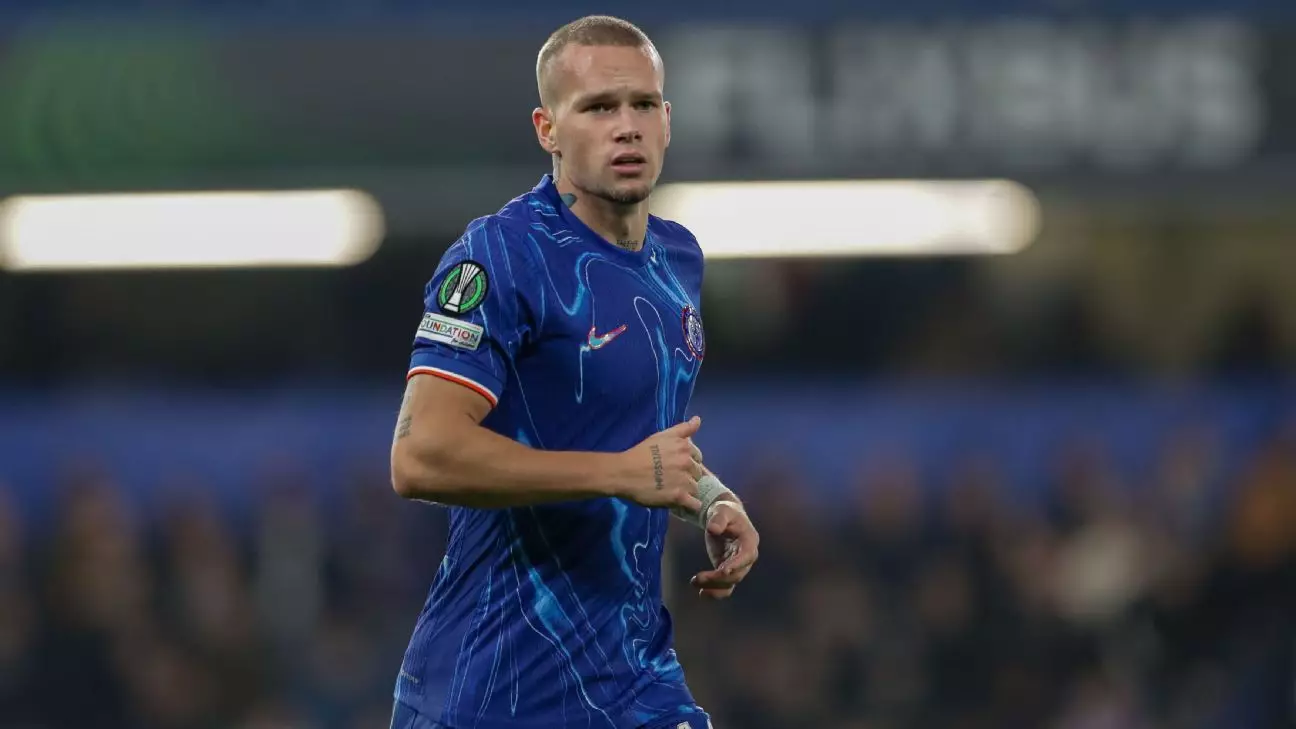The world of professional sports is no stranger to controversies surrounding athletes and doping allegations. Recently, Chelsea FC’s winger Mykhailo Mudryk became embroiled in such a scandal, sending ripples through the football community and raising questions about doping regulations and the integrity of players.
Reports surfaced that the Football Association (FA) informed Mudryk of a positive drugs test tied to an “A” sample collected in late October. This news has staggered the 23-year-old athlete, who took to Instagram to express his disbelief. He claimed, “This has come as a complete shock as I have never knowingly used any banned substances.” This statement reflects a genuine sentiment of confusion that many athletes experience when faced with such unexpected accusations.
While Mudryk awaits the results of a pending “B” sample test, speculations abound about the potential consequences. If the preliminary findings hold true, Mudryk could face a substantial ban — up to four years as per FA regulations. This impending reality weighs not only on Mudryk’s professional career but also on his reputation as a player who recently made a high-profile move to Chelsea for a fee potentially escalating to £88 million.
It has been reported through sources like ESPN that Mudryk has been provisionally suspended while investigations proceed. Chelsea has not confirmed this, signaling a deliberate approach to manage the crisis while staying compliant with FA guidelines. The club committed to supporting the anti-doping measures implemented by the FA, underscoring this by stating, “Both the club and Mykhailo fully support The FA’s testing programme and all our players, including Mykhailo, are regularly tested.”
In difficult situations like these, a club’s reaction can shape public perception. Chelsea’s response seems cautious yet strategic, aiming to balance transparency with the integrity of the ongoing investigation. The complexity of the situation is compounded by Mudryk’s recent absence from matches, which was initially attributed to illness.
The implications of this incident extend far beyond Mudryk himself. A positive drugs test brings to light the broader issues of doping in sports, a conversation that often challenges the perceived purity of athletic competitions. It forces fans and analysts to reconsider how players manage their health, training regimens, and the substances they ingest, knowingly or unknowingly.
The existence of prohibited substances in an athlete’s system can occur through various channels. Contamination or mislabeling of supplements, medications, or even unintentional exposure are possibilities that require thorough investigation. In Mudryk’s case, the athlete has emphasized that he is cooperating fully to understand how a banned substance entered his system, conveying a commitment to protect his name.
Public reaction to doping controversies tends to waver between skepticism and concern. Fans will often scrutinize the allegations, framing their understanding of the athlete’s character and commitment to fair play. Mudryk’s case may prompt supporters to rally behind him, as he insists that he has not intentionally engaged in any unethical practices. Social media becomes a double-edged sword; while it allows for immediate fan support, it also exposes athletes to harsh critique and speculation.
As the football world watches closely, the outcome of the B sample test will not only determine Mudryk’s fate but also serve as a case study for handling such situations. The football community will likely evaluate how well Chelsea and the FA navigate this rocky terrain while maintaining credibility with their stake in keeping the sport clean.
Mykhailo Mudryk’s unexpected positive drugs test is much more than an isolated incident. It highlights the vulnerabilities faced by athletes today, the relentless scrutiny of public opinion, and the critical importance of integrity in sports. As the investigation unfolds, Mudryk’s commitment to transparency and the support from Chelsea will be pivotal in shaping the narrative around this controversy. The football community must remain vigilant not only for Mudryk’s case but also in protecting the essence of fair competition moving forward.

